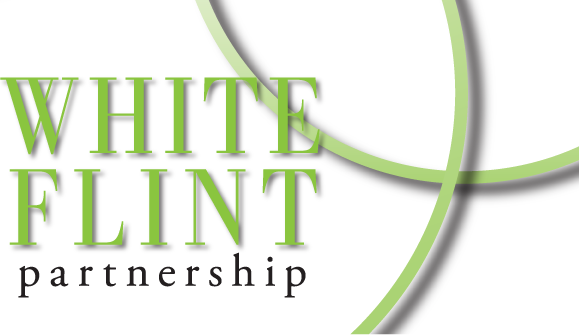Want to learn more about the White Flint Partnership’s plans for a new White Flint?
Download a presentation (PDF) here.
Montgomery County Planning Board
(Click here for White Flint Sector Plan)
The Montgomery County Planning Board (MCPB) is updating the White Flint portion of the 1992 North Bethesda/Garrett Park Master Plan to refine the vision, review the land uses and enhance the character of White Flint. The White Flint Sector Plan will identify ways to take better advantage of the area’s proximity to Metro’s Red Line by recommending a mix of land uses to transform the primarily commercial area. The plan’s goal is to create a thriving, diverse mixed-use center with the highest intensity closest to Metro and along Rockville Pike. Additionally, the plan will create new parks and open spaces and will transform Rockville Pike into a boulevard with a landscape median, tree-lined streets and improved crosswalks. A transportation network will be developed that includes a grid of new public streets that will also improve the pedestrian and bicycling environment. MCPD promotes sustainable development and strives to create new public facilities, provide affordable housing, and promote innovative ways to finance and manage new infrastructure.
Friends of White Flint
The Friends of White Flint is a nonprofit organization dedicated to achieving the Goal and Vision for White Flint, as set forth in the September 23, 2008 Final Report of the White Flint Sector Plan Advisory Group. Their mission is to create a green, walkable, fun and friendly place to live, work and play.
Urban Land Institute
ULI is a trusted idea place. Urban Land Institute provides leadership in the responsible use of land and in creating and sustaining thriving communities worldwide.
North Bethesda Transportation Management District
North Bethesda Transportation Management District, also known as the North Bethesda Transportation Center (NBTC), services commercial areas, both office and retail, and multi-family residential areas. Our goals are to reduce traffic, thereby reducing emissions. The NBTC has an advisory committee made up of representatives from businesses, civic associations, chambers of commerce and local government. Funding comes from grants, parking meter fees and fines, park & ride lot fees and permit revenue, and fees from new commercial and multi-family residential development. Participation in our programs is completely voluntary, and typically comes from employers with more than 25 employees, and owners of office buildings or retail complexes.
American Public Transportation Association (APTA)
APTA is the leading force in advancing public transportation. Their mission is to strengthen and improve public transportation. APTA serves and leads its diverse membership through advocacy, innovation and information sharing. APTA and its members and staff work to ensure that public transportation is available and accessible for all Americans in communities across the country.
Washington Area Bicycle Association (WABA)
The mission of the Washington Area Bicyclist Association is to create a healthy, more livable region by promoting bicycling for fun, fitness, and affordable transportation, advocating for better bicycling conditions and transportation choices for a healthier environment, and educating children, adults, and motorists about safe bicycling.
National BRT Institute
The Mission of the National BRT Institute is to facilitate the sharing of knowledge and innovation for increasing speed, efficiency, and reliability of high-capacity bus service through the implementation of BRT systems in the United States. BRT is an innovative, high capacity, lower cost public transit solution that can significantly improve urban mobility. This permanent, integrated system uses buses or specialized vehicles on roadways or dedicated lanes to quickly and efficiently transport passengers to their destinations, while offering the flexibility to meet transit demand. BRT systems can easily be customized to community needs and incorporate state-of-the-art, low-cost technologies that result in more passengers and less congestion.
National Center for Smart Growth
The National Center for Smart Growth Research and Education is a non-partisan center for research and leadership training on smart growth and related land use issues in Maryland, in metropolitan regions around the nation, and in Asia and Europe. The mission of the Center is to bring the diverse resources of the University of Maryland and a network of national experts to bear on issues related to land use and the environment, transportation and public health, housing and community development, and international urban development. The Center accomplishes this through independent, objective, interdisciplinary research, outreach and education.
Smart Growth Leadership Institute
The Smart Growth Leadership Institute is dedicated to helping state and local elected, civic and business leaders design and implement effective smart growth strategies. We believe that plans, policies, codes and regulations should encourage healthier neighborhoods, promote quality investments, eliminate red-tape, provide incentives to level the playing field for developers, foster active citizenship, and safeguard the future for our children.
